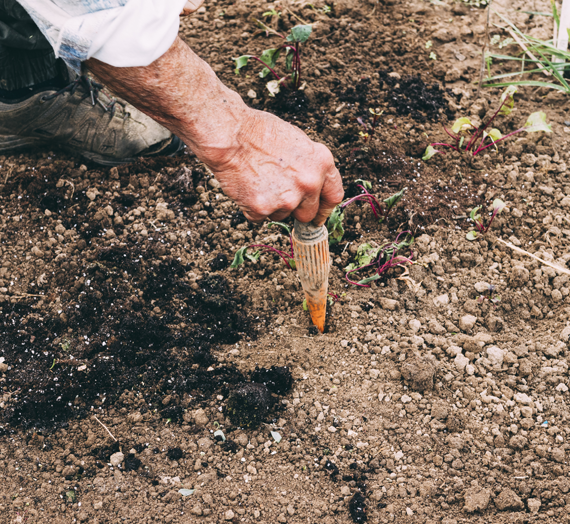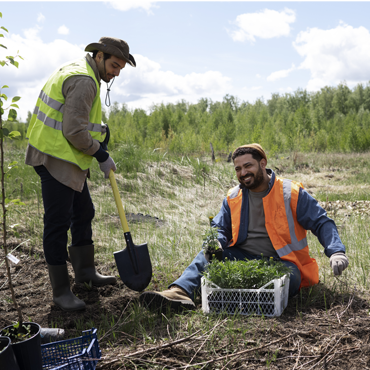Soil Testing And Analysis

RG environmental
Soil Testing And Analysis
Soil testing and analysis are foundational services at RG environmental, essential for optimizing crop production and ensuring sustainable agricultural practices. Understanding the nutrient composition, pH levels, and overall health of the soil allows farmers to make informed decisions about fertilization and crop selection. Our comprehensive soil testing services utilize advanced laboratory techniques to evaluate key soil characteristics, including macro and micronutrients, organic matter content, and soil texture. By providing detailed reports and tailored recommendations, we help farmers enhance soil fertility and address deficiencies that may limit crop growth. Additionally, our analysis includes assessments of soil health indicators, such as microbial activity and moisture retention capacity, which are critical for long-term sustainability. We emphasize the importance of regular soil testing as a proactive measure to monitor changes over time, enabling farmers to adapt their management practices in response to evolving soil conditions. By empowering farmers with precise data and actionable insights, our soil testing and analysis services contribute to improved yields, reduced input costs, and a more resilient farming ecosystem, ultimately fostering a healthier relationship between agriculture and the environment.
Benefits of Soil Testing and Analysis
Enhanced Crop Yields
By identifying nutrient deficiencies and soil health issues, soil testing allows farmers to optimize fertilization, leading to improved crop growth and higher yields.This proactive approach enhances productivity and promotes sustainable practices that protect the environment.
Improved Soil Health
Regular testing enables the monitoring of soil health indicators, allowing farmers to implement practices that enhance soil structure, fertility, and microbial activity.This continuous assessment helps ensure long-term sustainability and productivity for agricultural operations.
Tailored Recommendations
Soil testing provides specific insights that help farmers customize their management practices to the unique conditions of their fields, promoting more effective and efficient farming strategies. This tailored approach maximizes resource use.
Environmental Sustainability
Understanding soil composition helps minimize the overuse of chemicals and fertilizers, significantly reducing the risk of runoff and environmental degradation, thereby promoting sustainable agricultural practices.
Better Crop Rotation
Soil analysis informs farmers about the best crops to plant based on soil conditions, enhancing biodiversity and improving overall farm productivity.This strategic planting not only boosts yields but also contributes to healthier ecosystems and resilient farming systems.
Long-Term Planning
Regular soil testing establishes a baseline for soil health, aiding in strategic planning and informed decision making for future planting and management practices.This ongoing evaluation empowers farmers to adapt to changing conditions and optimize resource allocation.
RG environmental
Soil Testing and Analysis

Soil Health Indicators
Soil health indicators are essential components of our soil testing and analysis services at RG environmental, providing valuable insights into the vitality and sustainability of agricultural land. These indicators, which include soil pH, organic matter content, nutrient levels, microbial activity, and soil texture, serve as benchmarks for evaluating soil quality and overall ecosystem health. By assessing these factors, we can determine the soil's capacity to support plant growth, retain moisture, and regulate nutrient cycling, all of which are crucial for achieving optimal crop yields. For instance, a balanced pH level ensures that essential nutrients are available to plants, while a high organic matter content enhances soil structure and fertility. Microbial activity is another key indicator, as a robust microbial community contributes to nutrient breakdown and soil resilience. Our comprehensive soil health assessments allow farmers to identify specific strengths and weaknesses in their soils, guiding them in making informed decisions about management practices and amendments.

Implementing Test Results
Implementing test results is a critical step in maximizing the benefits of our soil testing and analysis services at RG environmental. Once we provide farmers with detailed insights into their soil's nutrient composition, pH levels, and overall health, we work collaboratively to translate these findings into actionable strategies. Our team of experts helps farmers understand the implications of the test results, guiding them in developing customized fertilization plans, crop rotation strategies, and soil amendment applications tailored to their specific conditions. For instance, if soil tests reveal a deficiency in essential nutrients, we assist in selecting the appropriate fertilizers and organic amendments to restore balance. Additionally, we emphasize the importance of regular monitoring to track changes over time, enabling farmers to adapt their practices as needed. Implementing these test results not only enhances crop yields and soil health but also promotes sustainable farming practices that minimize environmental impact.

Technology in Soil Testing
Recirculating Aquaculture Systems (RAS) represent a groundbreaking advancement in the aquaculture industry, offering a sustainable and efficient method for fish farming. These systems recycle water by filtering and purifying it before reintroducing it into the aquatic environment, thereby significantly reducing water consumption compared to traditional aquaculture practices. RAS not only minimizes the ecological footprint of fish farming but also allows for precise control of environmental parameters such as temperature, pH, and oxygen levels, creating optimal conditions for fish growth and health. This high level of control helps prevent disease outbreaks and enhances overall fish welfare, leading to improved growth rates and feed conversion efficiency. Additionally, RAS can be integrated with biofiltration and advanced water treatment technologies, further promoting sustainability by reducing waste and nutrient runoff.

Resources and Tools
We understand that effective soil testing and analysis require a range of resources and tools that empower farmers to make informed decisions about their management practices. Our services include access to state of the art soil sampling equipment, which allows for accurate and representative collection of soil samples from diverse areas within a field. We utilize advanced laboratory technologies, such as spectrophotometers and gas chromatography, to conduct comprehensive analyses that measure essential soil properties like nutrient content, pH levels, and organic matter. In addition to our high-tech testing facilities, we provide farmers with user friendly tools and software for interpreting results, enabling them to visualize data trends and make precise adjustments to their fertilization and crop rotation strategies. Our educational resources, including guides and workshops, equip farmers with the knowledge necessary to understand soil health and its impact on agricultural productivity.

When Is the Best Time for Soil Analysis?
Other important aspects to consider are the best time of the year to take analysis, as well as the amount of time that should be allocated to do so. For example, soil sampling for annual crops should be taken after the harvest. In doing so, a farmer is left with plenty of time to plan fertilization management. On the other hand, the best time for a soil analysis of perennial crops is during the dormancy stage. In the end, how often will a farmer analyze his soil, will depend entirely on him; whether he is ready to invest in soil quality and a higher yield or not.Quality and balanced soil are crucial factors for achieving higher yields. Therefore, farmers should collect soil samples frequently in order to detect any changes that could affect crop yield. It’s recommended to perform a soil analysis every 3-4 years. However, it would be ideal to practice soil analysis as often as possible, especially when growing annual crops in a crop rotation in which case, it is recommended to take soil analysis after every third crop in the rotation.Additionally, understanding the specific nutrient needs of different crops can guide the timing and frequency of soil testing. For instance, incorporating soil tests before planting can help tailor fertilization strategies to meet the specific requirements of the upcoming crop. This proactive approach not only supports optimal growth but also helps in preventing nutrient deficiencies that can hinder yields.
